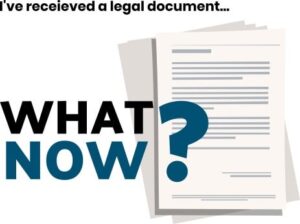Misleading and deceptive conduct
What is misleading and deceptive conduct?
Misleading and deceptive conduct is a type of selling behaviour that is prohibited under the Australian Consumer Law. Section 18(1) of the ACL states:
“A person must not, in trade or commerce, engage in conduct that is misleading or deceptive or is likely to mislead or deceive.”.
A “person” may include partnerships and corporations (even corporations outside of Australia).
“Trade or commerce” means any business or professional activity carried out by a person or business, providing, or acquiring goods or services, whether that is for profit or not.
In simple terms, this means that whether providing goods or services, a business cannot make claims or representations that create false impressions in consumers. Businesses must also not make misleading or false claims about their goods or services. Such claims or representations may be about, for example:
- the price, value or quality of the goods or services;
- whether the goods are new;
- the availability of repair facilities or spare parts;
- where a product was made;
- sponsorship or approval of the products or services;
- a need for the goods or services; or
- a requirement to pay for a guarantee, warranty or condition on the goods or services.
The claims are anything said or promised to a customer during a business deal and may include advertisements, promotions, quotes or testimonials. Silence can also be considered misleading if a business fails to disclose important information to a customer. A limited exemption applies to some businesses (mainly media outlets) who provide information in certain circumstances.
Specific circumstances
The ACL also contains laws about false and misleading representations in specific situations, including during the sale or grant of land. Such representations must not be made about, for example, the price, location or characteristics of the land, or how the land may be used or facilities associated with it.
In employment situations, the ACL prohibits conduct that is liable to mislead a prospective employee about, for example, the availability, nature, terms or conditions of the employment.
Types of misleading and deceptive conduct
Misleading and deceptive conduct, or conduct that is likely to mislead or deceive, can take many different forms. These include:
- offering rebates, gifts or prizes with the intention of not providing them, or of not providing them as offered;
- false advertising about a company’s or competitor’s product;
- using fine print or disclaimers to conceal information that is important for consumers;
- bait advertising and special offers that misrepresent a company’s products or prices to lure customers;
- advertising a product at an incorrect price, or falsely claiming that a product has been discounted;
- silence or non-disclosure of information that is important for consumers; or
- fake reviews and testimonials.
Determining misleading or deceptive conduct
The test for whether conduct is misleading or deceptive, or likely to be, is objective. That is, whether “reasonable” or “ordinary” members of the target audience would consider the conduct to be so. It is enough to show that a reasonable person might be led into error by the conduct.
The court’s main consideration is whether the overall impression formed by the conduct is false or inaccurate. The court will look at all the circumstances of a particular case, such as:
- the medium through which the representation was made;
- the context of the conduct (including, for example, documents provided, conversations and events up to the point of sale);
- the class of consumers likely to be affected by the conduct; and
- the form of any disclaimer.
For a claimant to be successful in seeking damages for misleading or deceptive conduct, they must show that they suffered loss due to their reliance on the conduct.
Remedies for misleading and deceptive conduct
Under the ACL, the maximum fine for making false or misleading misrepresentations is $220,000 for a person and $1.1 million for a corporation.
The Australian Competition and Consumer Commission, and state and territory regulators, can also issue infringement notices and public warning notices.
Civil remedies include:
- damages for losses suffered;
- an injunction (which prohibits the person or business from engaging in the conduct);
- a compensation order; and
- a corrective advertising order (which requires the person or business to stop the false advertising and correct the false impression).
Unconscionable conduct
What is unconscionable conduct?
The ACL also prohibits a person from engaging in “unconscionable conduct” in the course of business. “Unconscionable conduct” has no precise definition, but generally refers to conduct that is so harsh, unfair or oppressive that it “defies good conscience”.
Types of unconscionable conduct
Unconscionable conduct can take many different forms, including:
- compelling a person to sign a blank agreement;
- failing to explain contract terms to someone who does not understand English well or has a learning disability;
- using a friend or relative to influence a person’s decision;
- not allowing a person enough time to read a contract before signing;
- failing to disclose key terms of a contract; or
- refusing to take “no” for an answer.
To avoid being a victim of unconscionable conduct, a person may take steps such as ensuring any agreement is in writing, fully understanding any agreement before signing it, and not succumbing to high-pressure tactics.
For a business to avoid engaging in unconscionable conduct, it may take steps such as ensuring contracts are thorough and easy to understand, that important contract terms and conditions have been disclosed, and that the characteristics and vulnerabilities of customers have been considered.
Determining unconscionable conduct
When determining whether a person has engaged in unconscionable conduct in the supplying or acquiring of goods or services, the court may consider factors including:
- the relative bargaining strengths of the parties;
- whether the weaker party could understand any documents relating to the transaction;
- whether the transaction involved any undue influence or pressure, or unfair tactics, from the stronger party;
- whether the weaker party was required to comply with conditions that were not reasonably necessary to protect the other party’s legitimate interests;
- whether the stronger party’s conduct was consistent with that in similar transactions with similar weaker parties;
- requirements of any relevant industry code;
- the terms and conditions of any contract between the parties; and
- the extent to which the parties acted in good faith.
Remedies for unconscionable conduct
Possible remedies include:
- significant financial penalties;
- compensation for loss or damage;
- having a contract declared void in whole or in part;
- having a contract varied; and
- a refund or performance of specified services.
Unfair contract terms
Under the ACL, a term is void if it unfair and the contract is a standard form contract (a contract that is the same or similar for each consumer).
The meaning of “unfair”
A contract term is deemed to be unfair if it:
- would cause a significant imbalance in the parties’ rights and obligations under the contract;
- is not reasonably necessary to protect a party’s legitimate interests; and
- would cause detriment to a party of it were applied or relied on.
In determining whether a term is unfair, the court must consider the extent to which the term is transparent, and the context of the contract as a whole. “Transparent” means a term which uses reasonably plain language, and is presented legibly and clearly. It should also be readily available to any party affected by it.
The onus is on the party imposing the term to prove that the term is reasonably necessary to protect their legitimate interests.
Examples of unfair terms
A contract term that may be unfair is one that, for example:
Permits, or has the effect of permitting, one party (but not another party) to:
- avoid or limit performance of the contract;
- terminate the contract;
- vary the contract terms;
- renew or not renew the contract;
- vary the upfront price payable under the contract without the right of another party to terminate the contract; or
permits (or has the effect of permitting) one party to unilaterally:
- determine whether a contract has been breached or to interpret its meaning;
- vary the characteristics of the goods and services to be supplied, or the interest in land to be sold or granted, under the contract; or
limits (or has the effect of limiting) one party’s right to sue another party.
Some terms are exempt from the law that governs unfair contract terms. Exempt terms are those that set out the price, or define the product or service being supplied, or are required or permitted by another law. Also, some contracts are exempt from this law, including company constitutions and contracts for the shipping of goods.
If a term is declared unfair it will be voided, but the rest of the contract may still apply if it can continue without the voided term.
If you believe that you have made a purchase involving misleading or deceptive conduct, unconscionable conduct or unfair terms (or if your business has been accused of any of these), Gibbs Wright can assist you.
Call us for a no-obligation consultation about your legal rights and duties.




